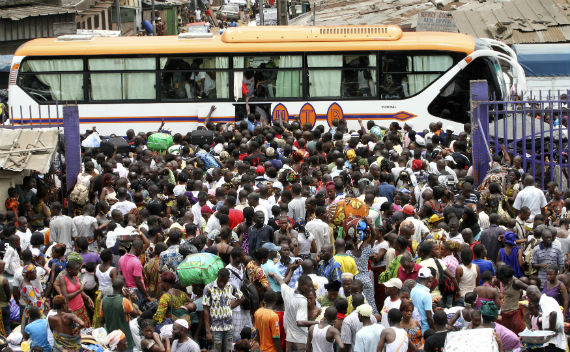Africa’s Population Explosion
October 12, 2011 3:10 pm (EST)
- Post
- Blog posts represent the views of CFR fellows and staff and not those of CFR, which takes no institutional positions.
More on:

A Standard Bank analyst is predicting that sub-Saharan Africa’s population will reach two billion over the next forty years. On the positive side, he thinks that Africa’s population will become younger and more affluent, which will promote the growth of a consumer base and generate economic and foreign investment opportunities. I hope so, but I am not so sanguine.
Certainly sub-Sahara Africa’s population is growing. For example, some demographers estimate that Nigeria’s population is already around 165 million, and Lagos (city and state) has seventeen million inhabitants. However, without improvements in governance, economic development, and infrastructure, rapid population growth can exacerbate long-standing quarrels over land use and fuel ethnic and religious violence. The characteristic youth bulge accompanied by soaring levels of youth unemployment adds another layer of instability. And even where there is a plethora of university graduates, too many of them cannot find jobs.
To support its growing population, sub-Saharan Africa needs transformative economic development, including rapid expansion of food production, power generation, and improved infrastructure, especially roads. The economic growth that is measured by conventional statistics is not transforming economies nor creating the necessary jobs. In those countries blessed with abundant natural resources, the resulting state revenues are too often not being used to promote the public good. To achieve the sustained economic growth that would channel and enhance Africa’s productive powers requires leaders and institutions willing and capable of managing limited resources and competing interests.
Population growth is neutral. The question is how governments and their institutions respond to it.
More on:
 Online Store
Online Store
